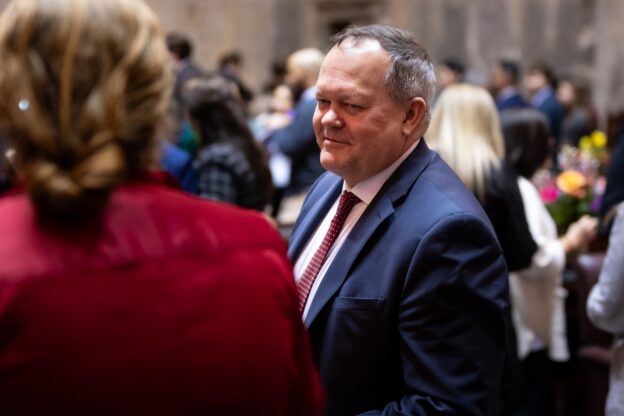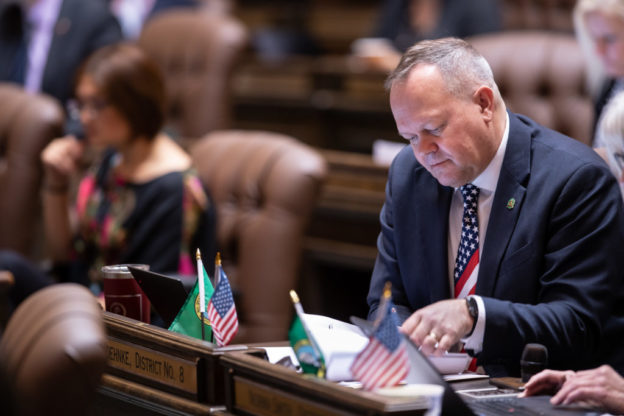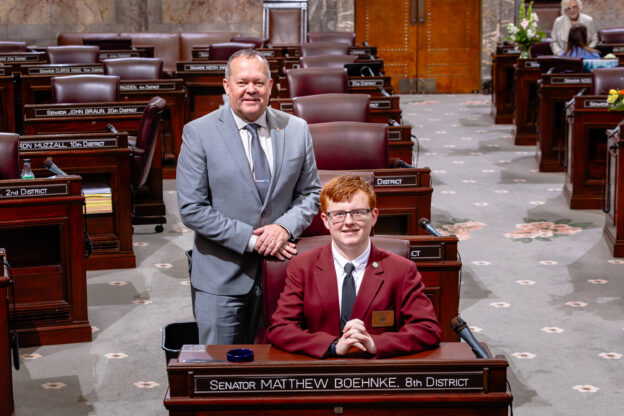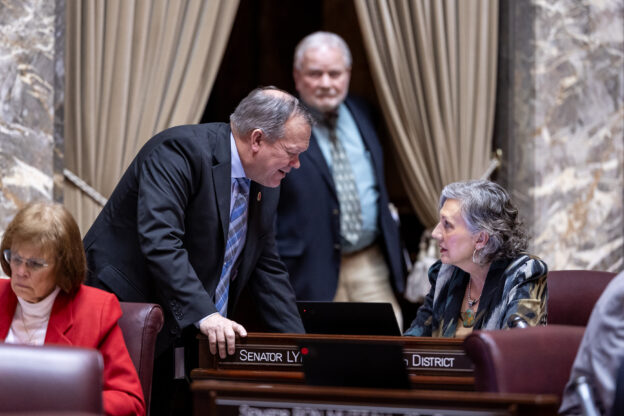OLYMPIA… Washington State Senator Matt Boehnke has been very active in representing the 8th district this legislative session, with 28 bills introduced or retained from the 2023 legislative session. As the 2024 session ended today, Boehnke had five bills pass the House last week, all unanimously, and concurred by the Senate this week. All five bills are now headed to Governor Inslee for signature.
SB 5891 and SB 6296 were unanimously passed by the House February 27 and concurred with the Senate on Monday. SB 5891 protects the safety and security of students and maintains order within school buses by designating trespassing on a school bus as a criminal offense. SB 6296 supports the retail workforce by creating a retail industry workgroup to identify and recommend four colleges to pilot micro- and short-term credentials for the retail workforce.
“Today, we celebrate not just the passing of SB 5891 and SB 6296, but the spirit of progress and protection they embody. These bills reflect our collective resolve to safeguard our students’ well-being and to fortify the foundation of our retail industry through education and opportunity,” Boehnke said. “Together, they symbolize our commitment to building a future that honors the safety, dignity, and potential of every member of our community.”
SB 6079 was unanimously passed by the House February 28 and delivered to the Governor on Thursday for signature. SB 6079 will make juvenile detention records available to managed care organizations and behavioral health administrative services organizations for care coordination activities.
The fourth bill to pass the House was SB 5660, which Boehnke introduced during the 2023 legislative session. The bill failed to advance but, by resolution, was reintroduced in its present status during this year’s legislative session. The bill was unanimously passed by the House February 29 and then the Senate on Monday.
SB 5660 directs the Washington State Health Care Authority to convene a workgroup to create recommendations for effectively implementing mental health advance directives. This document declares a person’s preferences regarding their behavioral health treatment in the event they are incapacitated due to their behavioral health disorder.
“The unanimous House approval of both SB 6079 and SB 5660 sends a clear message: our community’s health and well-being are paramount,” Sen. Boehnke said. “These bills, now awaiting the Governor’s signature, are more than legislation; they are beacons of hope for a future where care coordination and mental health support are not just ideals, but realities.”
Boehnke’s last bill, SB 6068, expands the ability of courts to work with the DOC to collect and report more data about foster kids’ adoption and reunification rates A report will be due to the legislature by July 1, 2025. The bill passed the House March 1, the final cutoff for bills to pass out of the opposite house and was concurred in the Senate on Monday.
“In a world where mental health often takes a backseat, SB 5660 shines as a beacon of progress, ensuring that individuals have a say in their treatment through mental health advance directives,” Sen. Boehnke said. “These bills mark a significant milestone in our journey towards a more empathetic and effective approach to health and welfare. I want to thank all the members who helped work these policies, our great committee and budget staffs and the local community passionate people who took the time and effort to share these ideas, to fight for solutions to these issues impacting our state.”


















